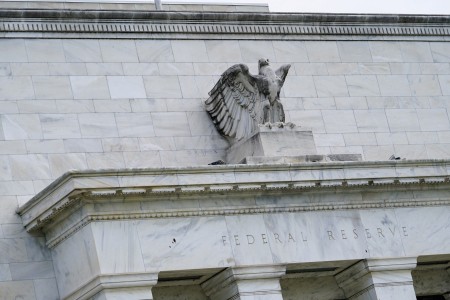By Pete Schroeder
WASHINGTON (Reuters) – The U.S. Federal Reserve announced on Wednesday it had set the latest capital cushions for large banks following June’s annual stress tests, but agreed to shrink Goldman Sachs’ burden.
The new levels, effective Oct. 1, largely mirror the ones the Fed first identified as part of the annual health check of large banks.
The central bank, however, added in its statement that it had lowered the extra capital level required of Goldman Sachs, after the firm asked the central bank to reconsider its finding. The bank now must hold a “stress capital buffer” of 6.2%, down from the 6.4% suggested in the test.
The Fed said it agreed to the change after receiving additional information from the bank, adding it was appropriate to adjust the treatment of some nonrecurring historical expenses under the exam.
In a statement when the results were released, Goldman CEO David Solomon said he planned to discuss the finding with the Fed.
“We appreciate the Federal Reserve’s willingness to reconsider this matter,” said Goldman Sachs’ Chief Financial Officer Denis Coleman after the results were released.
“We will continue to engage with our regulator to better understand their determinations and to advocate for a more transparent process.”
The Fed added it would explore changing how banks report data to refine its collection, as well as possible refinements to its internal stress test models.
(Reporting by Pete Schroeder; editing by Jonathan Oatis and Marguerita Choy)






